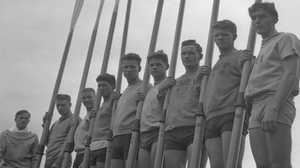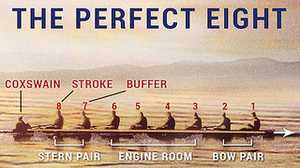Lucy Pocock and Women's Rowing
Decades before nine young men from Washington captured gold in the '36 Olympics in Berlin, female athletes at the University of Washington were writing their own story.
Women's rowing was formally established in 1908 and hit its stride in 1913 when Lucy Pocock took over as coach. Pocock was a masterful oarswoman from England who once rowed so hard to win a race that she fainted when she crossed the finish line. She came from a family of rowers and boat builders and her brother George Pocock would go on to become a master builder of racing shells renowned throughout the country. Lucy Pocock revitalized the women's rowing team, giving it a new foundation that would last until 1920. But that year would see the last of women's rowing at UW, and the sport would not resume for another five decades until the program's revival in the early 1970's.
The granddaughter of Lucy Pocock, Heidi Danilchik, shared her grandmother's story in an interview with American Experience.
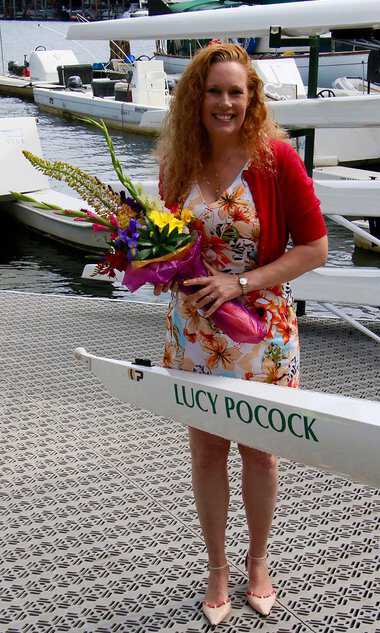
Tell us about Lucy Pocock as a rower in her own right. How was her passion for the sport ignited?
Lucy Pocock came from a long line of Thames watermen on both sides of her family. Having been born and raised along the river, rowing was her birthright. Having a typical Victorian upbringing kept females harnessed to hearth and home and to lady-like activities. But Lucy’s enlightened father saw nothing wrong with letting his 6-foot tall daughter take a punt [a type of rowboat] out for a day of rowing. Lucy experienced freedom on so many levels out on the water that rowing quickly became her sport. Ladies' rowing competitions were few and far between at the turn of the former century. But Mixed Doubles (a gentleman and a lady with coxswain) were common and there was serious competition to be had. She and her partner had great successes in 1906 and onward, culminating in her impressive victory and subsequent defense of the first Women’s Sculling Championship of the Thames in 1912. She had won all she could in England and with her winnings (and side bets made by her father) she, her little sister Kath, and their father set out for America to meet up with brothers Dick and George Pocock.
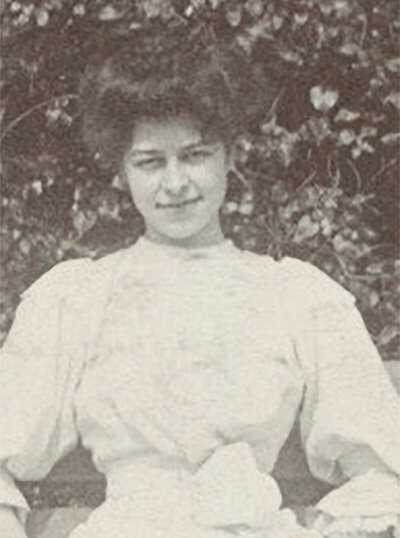
As the story goes, Lucy Pocock is part of the reason George Pocock made it in the Pacific Northwest, where the rest is history. Tell us about that.
George was the fourth child and their mother perished of complications from childbirth. Lucy was just four years old at that terrible time. With their father working long hours, they were left under the care of a series of increasingly Dickensian housekeepers who showed no love or compassion to the small tribe of children. Lucy did her best to “mother” her little brothers Dick and George. At the age of thirteen, the housekeeper situation was untenable and Lucy took over the running of the home, marketing, cooking, and cleaning, along with her school studies. Her brothers always had immense respect for Lucy and thought of her as their guardian angel. When Lucy landed in Vancouver, British Columbia and then Seattle, she took cooking jobs to support the family. The boat business was slow to take off and payments for boats were even slower in arriving. Lucy’s steady paycheck was what paid the bills.
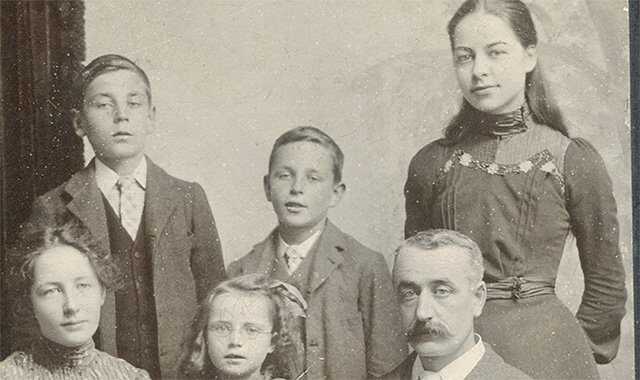
She became the women's rowing coach in 1913. What was her impact on women's rowing at UW in those early years?
Women’s rowing had been suspended at UW in 1910 after the Gymnasium Director thought it too strenuous for the "weaker sex." Coach Hiram Conibear [considered the "father" of Washington rowing] had actually enjoyed coaching the ladies but was deeply frustrated by the administration banishing ladies racing, instead making regattas a form and beauty contest [where the ladies were not judged on speed but rather on] their outfits and graceful sculling. Conibear was working to bring competitive women’s rowing back to UW and he hired Lucy fresh off of her championship win [back in England] to coach the women -- they then had a record turnout. We do not have the details of the parting of Lucy and UW. Intriguingly, Coach Conibear wrote her a letter of recommendation on “Pocock Bros Boat Building” letterhead and (tellingly) not on University of Washington letterhead.
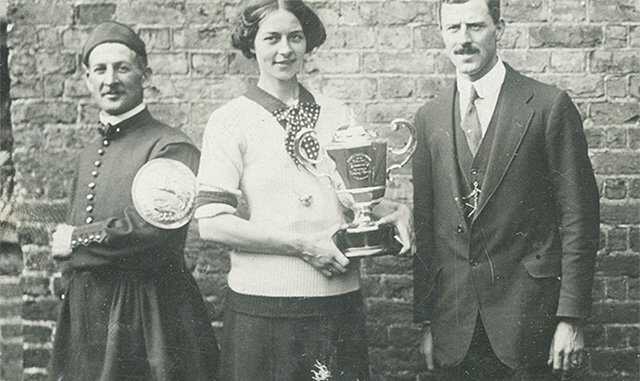
After being the rowing coach, Lucy seems to have kept a low profile. Why did she only coach for such a short time and did she continue to row after? How did she spend her time in Washington?
Lucy saw her brothers’ boat business launched; George had contract work with Bill Boeing [the aviation pioneer who founded the Boeing Company] to fill in the gaps when boat building was slow. Dick was hired by Yale to be their boatman and moved East with his new bride. With her brothers set up in life, Lucy was free to find her own happiness. Lucy met a widower [named James Stillwell] with three small children and fell in love. They got married and lived happily ever after. The story of how they met is etched into the topography of Seattle. The widower was the contractor digging the Montlake Cut [a ship canal connecting Lake Washington and Lake Union that is used today as the home rowing course for the University of Washington]. Most early mornings he would see an elegant woman rowing across the lake to go to market. It was Lucy going to buy groceries for the crew table and the Varsity restaurant. He couldn’t take his eyes off her. They were married in 1917 and had two daughters of their own. Lucy attempted to teach the children how to row, but they were not keen. I am sure it was frustrating to have five children all over six feet tall and not a one of them rowing a boat!
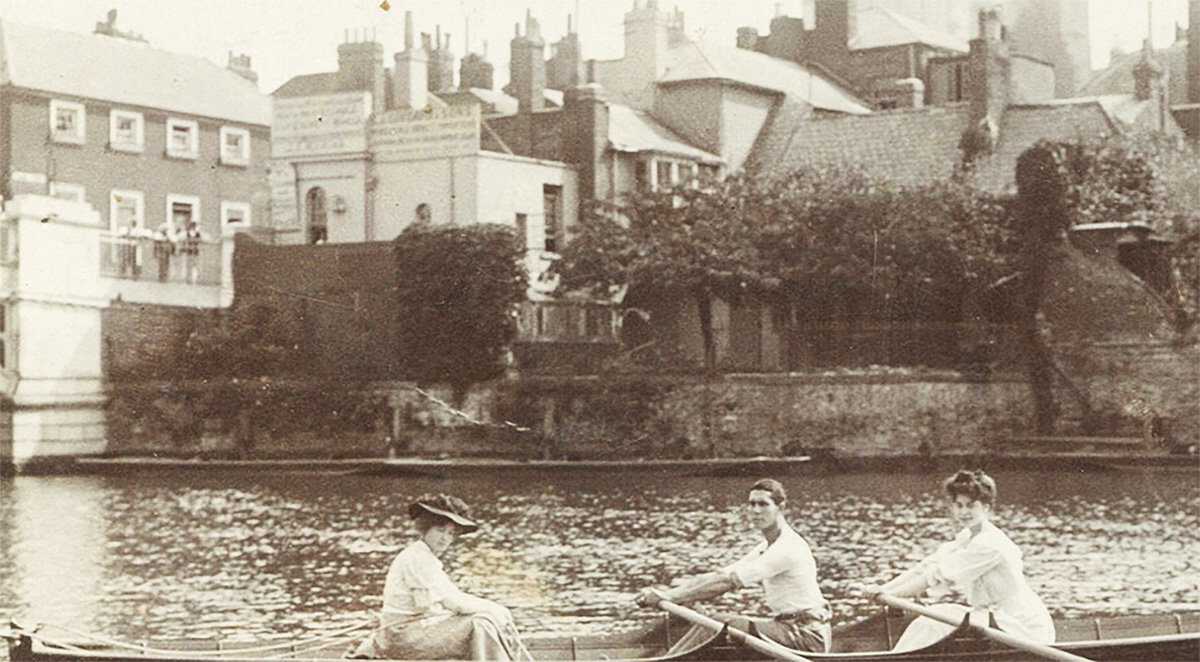
What is her enduring legacy for rowing and in particular women's rowing? How would you like to see that legacy live on?
The women who seriously competed in rowing before the advent of Title IX are a special breed. They worked with worn-out, hand-me-down and ill-fitting men’s equipment, were condescended to, got the worst training times on the rowing schedule, and generally weren’t encouraged. And yet those ladies kept at it and stayed in it, and today they are running a goodly percentage of the boathouses currently in operation. Lucy was one of those early pioneers in the sport, who took the flak, shrugged off the jeering, and did what made her heart sing.
I’d like to see women’s rowing finally fully come out of the shadow of men’s rowing. It is just as thrilling a spectacle. Much like the success of women’s soccer, I think women’s rowing has the potential to eclipse men’s rowing if the media (and potential sponsors) only knew what they have been ignoring.
[Today, Lucy Pocock] would probably whisper to the ladies that they could go faster! Lucy was a disciple of the Thames Waterman’s Style of sculling. It is about working with the water not beating the heck out of it like you see today. It is perfect for women, the holy grail of swing is achievable, and thus you can go very, very fast. Redirecting energy takes much less effort than producing it. If women's rowing returned to this style of sculling, new world records would be set. Stop copying the men, and advance the sport again ladies.




